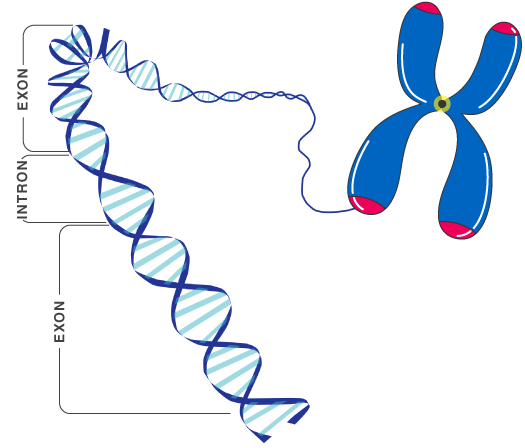Biological Gene | Anthropology Optional for UPSC PDF Download
Introduction
Genes serve as the fundamental units of heredity, being composed of DNA. Chromosomes, which are formed from DNA, house numerous genes within their structure. Each gene carries a specific set of instructions that dictate a particular function or protein-coding process.

- In each human body cell, there are approximately 30,000 genes, which constitute only 2% of the entire genome. Extensive research has been conducted to identify the locations of nearly 13,000 genes on individual chromosomes.
- The field of genetics was introduced by William Bateson in 1905, and the term "gene" was first coined by Danish botanist Wilhelm Johannes in 1909. He used the term to represent hereditary factors in living organisms.
Genetic Determinants of Human Characteristics
- Human cells consist of 23 pairs of chromosomes that carry genes responsible for determining various traits. These traits are influenced by one or more genes, including abnormal genes and those formed due to new mutations. The size of genes varies depending on the code or protein they produce. Although all human cells have the same DNA, the differences between cells arise from the specific genes that are activated, leading to the production of diverse proteins.
Inheritance and its Causes
Genes, like chromosomes, exist in pairs, and each parent carries two copies of their genes. During reproduction, each parent contributes one copy of their genes to their offspring. As a result, children inherit numerous characteristics from both parents, such as hair color and eye shape.
Functions of Genes
- Genes play a crucial role in controlling the functions of DNA and RNA, which are essential for the proper functioning of the human body. They are responsible for the synthesis of proteins, which serve as vital building blocks for muscles, connective tissues, and skin. Additionally, proteins are also involved in the production of enzymes that facilitate various chemical processes and reactions within the body.
- In essence, genes regulate the activities carried out by the body by providing specific instructions for protein synthesis. For instance, the globin gene is responsible for producing hemoglobin, a protein that plays a crucial role in the transportation of oxygen in the blood.
Conclusion
Genes are the fundamental units of heredity, responsible for determining various human traits and characteristics. Composed of DNA, they are housed within chromosomes and play a critical role in controlling the functions of DNA and RNA. Genes provide specific instructions for protein synthesis, which influences various processes and functions within the human body. Inheritance of genes from both parents results in children acquiring a combination of their parents' traits. The study of genes and their functions has significantly advanced our understanding of genetics and its role in human biology.
Frequently Asked Questions (FAQs) for Genes
What is the primary function of genes in the human body?
Genes primarily function as the governing units of heredity, providing specific instructions for protein synthesis. These proteins serve as essential building blocks for various body structures and facilitate numerous chemical processes and reactions.
How do genes contribute to the inheritance of traits and characteristics?
Genes exist in pairs, with each parent carrying two copies of their genes. During reproduction, each parent contributes one copy of their genes to their offspring. As a result, children inherit a combination of traits and characteristics from both of their parents.
What is the relationship between genes, DNA, and chromosomes?
Genes are composed of DNA and serve as the fundamental units of heredity. Chromosomes, which are formed from DNA, house multiple genes within their structure. Together, genes, DNA, and chromosomes play crucial roles in determining and regulating various human traits and characteristics.
How does the activation of specific genes lead to differences between cells?
Although all human cells have the same DNA, the differences between cells arise from the specific genes that are activated. This activation leads to the production of diverse proteins, which in turn influence various processes and functions within the human body.
|
209 videos|299 docs
|





















